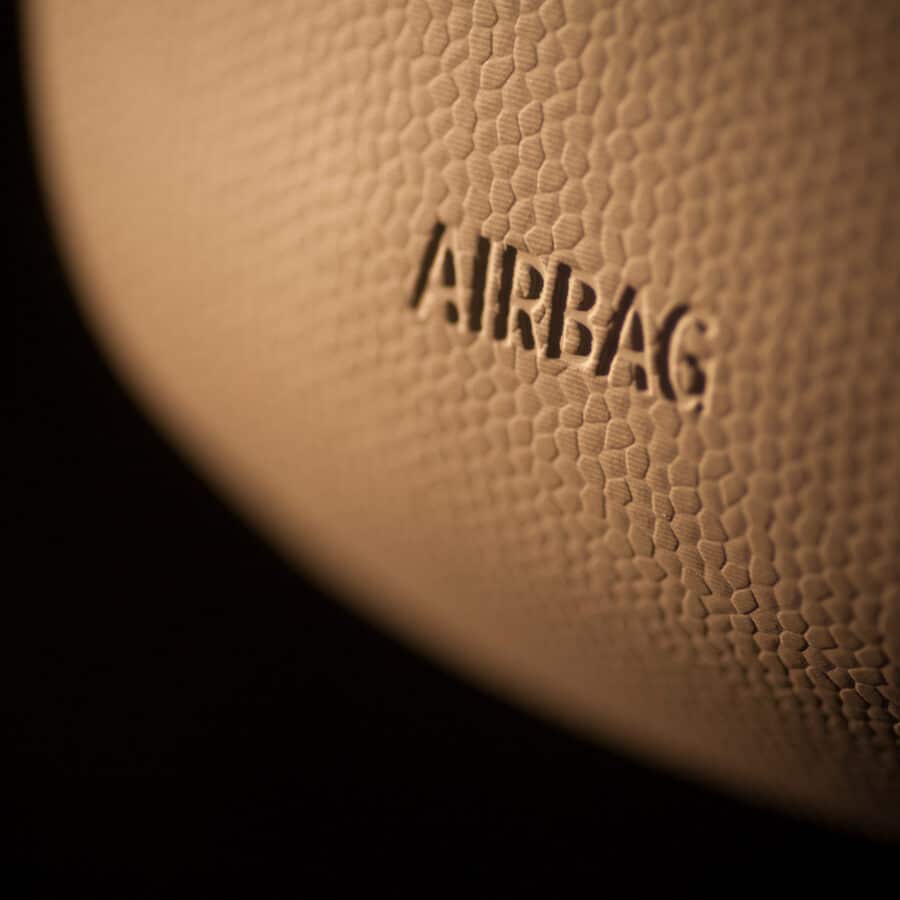The Senate Committee on Commerce held a congressional hearing last month to understand the latest details of the Takata recall, which is the largest in auto industry history. Takata’s potentially fatal airbag inflators affect more than 37 million vehicles and 19 automakers. One of the major findings of the hearing is that there are currently 62,307 “Alpha” inflators in Honda and Acura vehicles still on the road.
Industry experts have pointed to the volatility of ammonium nitrate, which is used to inflate Takata’s airbags, as the reason for shrapnel being shot out of the airbag. Most airbag manufactures use the chemical guanidine nitrate instead, because it is more stable, but it is also more expensive. “Alpha” inflators are those that contain manufacturing defects that make them more prone to rupture than inflators that were made correctly but also used dangerous ammonium nitrate in their propellant. According to a Takata report to the National Highway Traffic Safety Administration, a number of problems at various Takata plants from 2000 until 2005 resulted in propellant that was low density and inflators that allowed moisture to degrade the already weak propellant. So far, at least 23 people have been killed worldwide by a Takata inflator and hundreds more have been hospitalized.
These “Alpha” inflators have the highest probability of rupturing and inflicting injury or causing a fatality. “Alpha” inflators found in Honda vehicles appear to be more deadly than those installed in other manufacturers vehicles. Sen. Amy Klobuchar, who serves on the commerce committee, is continuing to publically hold Honda accountable and is calling for the immediate replacement or repair of their faulty airbag inflators, which were installed in over one million Honda vehicles. Of the 15 deaths in the U.S. caused by Takata inflators, 11 have been connected to an “Alpha” inflator.
“Takata airbag inflators known as ‘Alphas’ installed in certain 2001, 2002, and 2003 Honda and Acura models have been shown to pose a 50 percent risk of rupture when the airbags deploy,” wrote Sen. Amy Klobuchar (D-Minn.) in a letter to Honda executives. “Given the significant public safety threat caused by these defective parts, the removal of all ‘Alpha’ inflators from America’s roads must be an immediate priority.”
At the hearing, Honda executives told the senators that they had replaced or repaired around one million of the “Alpha” inflators. Honda even went as far as deploying employees to canvas the homes of affected owners to encourage immediate repairs. But more than 60,000 of the “Alpha” inflators are still on U.S. roads, and earlier this year another fatality was confirmed.
With the help of three former Takata employees, the U.S. Department of Justice (DOJ) discovered that Takata tried to cover up the defective inflators and went as far as committing fraud to do so. Takata, soon to be renamed Joyson Safety Systems after being purchased out of bankruptcy by Key Safety Systems, came to a $1 billion settlement with the DOJ. As part of the settlement, $850 million was set aside for the automakers, $125 million to compensate affected consumers, and an additional $25 million to be paid as a criminal penalty. Three Takata executives were also indicted, but they have not been extradited to the U.S. and remain in Japan.
“For over a decade, Takata lied to its customers about the safety and reliability of its ammonium nitrate-based airbag inflators,” said Acting Assistant Attorney General Kenneth A. Blanco. “Takata abused the trust of both its customers and the public by allowing airbag inflators to be put in vehicles knowing that the inflators did not meet the required specifications.”
To see if your vehicle has been affected by the Takata recall, obtain your vehicle identification number (VIN) and visit: https://www.nhtsa.gov/recalls


